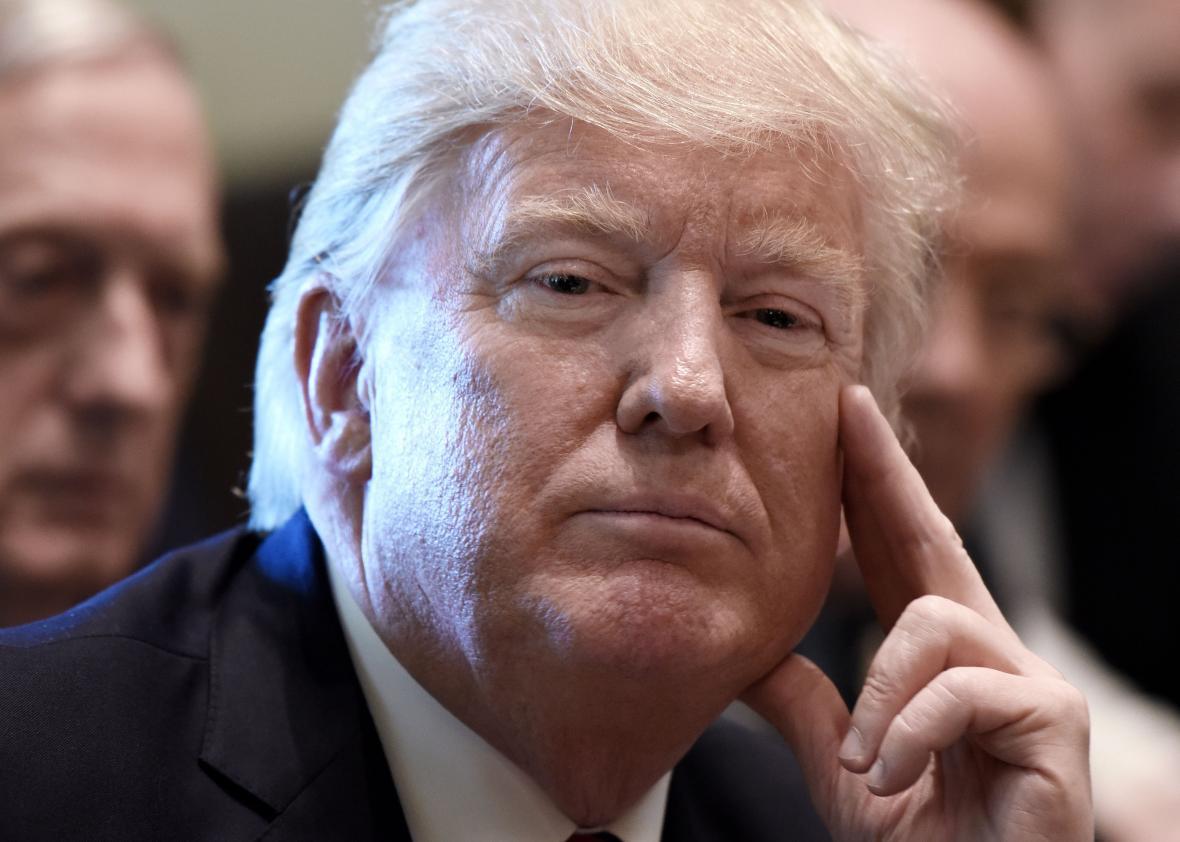U.S. Rep. Mike Quigley, a Democrat from Illinois, loves a good acronym. Back in March, he introduced the Make Access Records Available to Lead American Government Openness Act—better known as the MAR-A-LAGO Act—which would publicize visitor logs for “location[s] at which the President or the Vice President regularly conducts official business,” including, yes, the president’s Mar-a-Lago Club.
While that act has yet to make its way out of the House, Quigley has already stepped up his acronym game, introducing the Communications Over Various Feeds Electronically for Engagement Act on Monday. As Quigley’s office explains in a press release, the bill amends the Presidential Records Act “to include the term ‘social media’ as a documentary material.” In other words, Quigley’s bill would ensure that the National Archives preserve the president’s tweets (along with, presumably, any Facebook posts, Instagram stories, and Snapchat selfies), much as it already does for other materials produced by the executive branch.
As is likely obvious, that clumsy accumulation of words refers to Donald Trump’s similarly awkward (if less intentionally so) tweet from the early hours of May 31: “Despite the constant negative press covfefe.” While the president (or his handlers) subsequently deleted the tweet, it inspired widespread mockery and speculation, making it a meaningful part of the administration’s history, even if it had no message of its own.
As legislative acronyms go, COVFEFE is probably better than most. In 2015, the Washington Post’s Philip Bump rounded up (and rated!) hundreds of actronyms, pointing to offenders like the Robo COP (Robo Calls Off Phones) Act. Mother Jones has also tracked down some of the worst, including the especially dreadfully-named STALKERS (Simplifying the Ambiguous Law, Keeping Everyone Reliably Safe).
Unlike some of those groan-inducing titles, Quigley’s latest is a surprisingly clever choice. On Twitter, at least, the time for “covfefe” jokes has largely passed. (Sorry to say, but Hillary Clinton killed them dead.) This act, however, is about holding the president to his word by holding his words in place, however fleeting they may seem. If it becomes law, the otherwise temporary virality of covfefe will become a matter of permanent record, turning our collective digital distractability on its head. In that sense, it’s a reminder that we’re forever making history, even when events seem to proceeding at such a dizzying pace that each new development effaces the last. It’s precisely the ease with which most of us moved on from covfefe that makes it such an apt title.
Even if you think the name of Quigley’s act is a little precious, it’s worth nothing that it sets out to solve a real problem. Trump’s Twitter feed has long presented a legal enigma, since it’s not clear how or to what extent the Presidential Records Act applies to his social media usage. In February, White House spokeswoman Kelly Love told CNN that the administration had “systems in place to capture all tweets and preserve them as presidential records; even if they have been deleted.” While it wasn’t clear at the time what those “systems” entailed, there are others keeping an eye on the president’s occasional excisions: Most notably, ProPublica’s Politwoops, which rounds up all of Trump’s deleted tweets (and those of other politicians) without comment.
While that’s all well and good, it’s not enough for the public to hold the executive branch accountable: We must demand that it stand by (or at least own up to) its own statements as well, whatever platform they appear on, and legislatively codifying that obligation can’t hurt. Ultimately, Quigley’s COVFEFE Act is just a step in that direction, though: The representative’s press release holds that the president’s tweets constitute official statements, but everything else about the president’s public comportment online—his retweets, his likes, maybe even who he blocks—is arguably worthy of preservation as well. Figuring out how to preserve those details will, of course, likely take much more than a small revision to the Presidential Records Act. We look forward to the inevitable Other Recorded Business (ORB) Act, which will surely work out the particulars.
